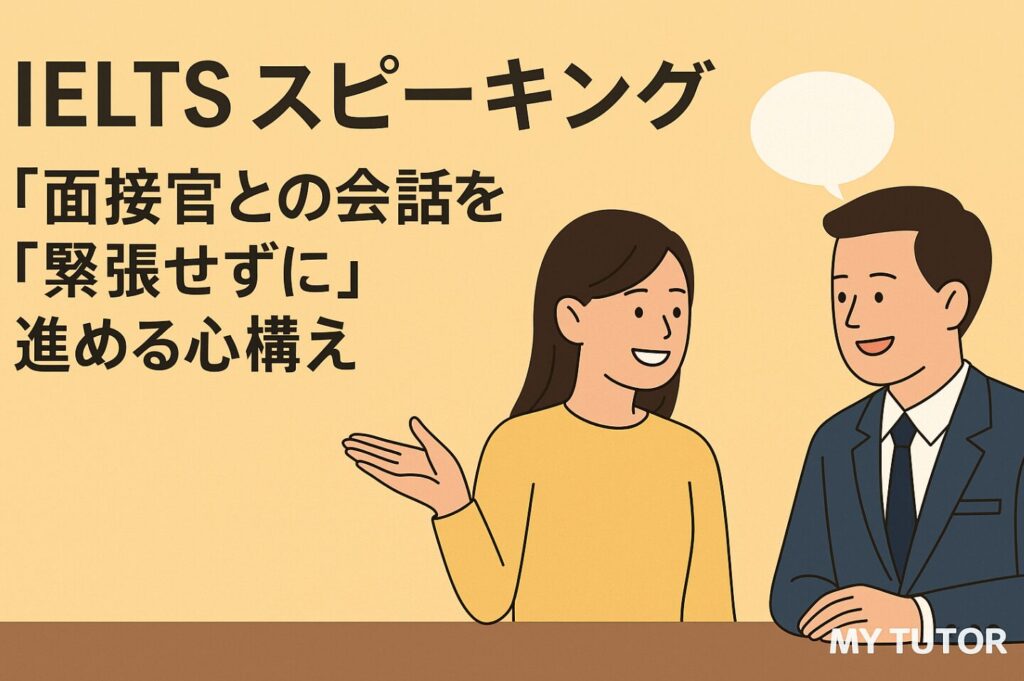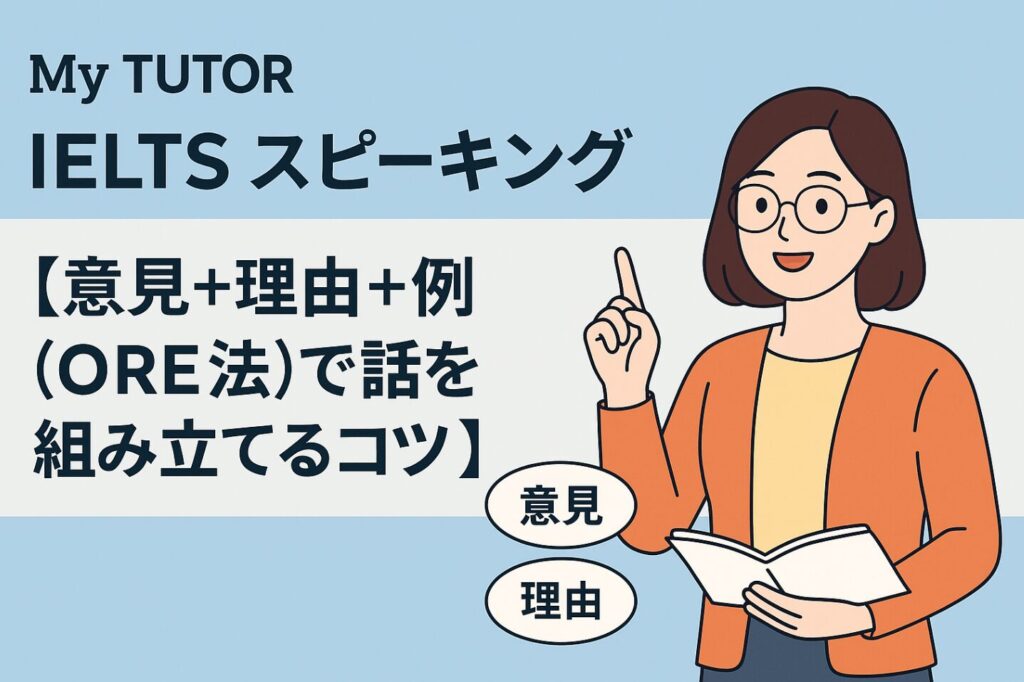
【面接官との会話を「緊張せずに」進める心構え】
😰How can I prevent myself from getting so nervous that my mind goes blank?
When it comes to the actual IELTS speaking test, the thing that worries many test takers the most is that they will become too nervous and not be able to speak well.
However, the most important thing about speaking is not “perfect English” but “natural communication.”
In this column, we will introduce the mindset and practical points to help you stay calm and continue conversations even during the actual exam .
🧠Three things to keep in mind to avoid nervousness during the actual performance
1. The examiner is not your enemy.
The IELTS examiner is a professional who will “examine” your English ability and evaluate you, but they are also your conversation partner .
Think of them as someone who will draw out natural conversation, not someone who is trying to make you nervous.
2. ❝Mistakes are not a deduction, they are “normal”❞
Grammar mistakes, self-correction, and stumbling over words are common occurrences even among high-scoring students .
What’s important is how you recover afterward . Even if you make a mistake, being able to rephrase it with a smile can actually lead to a higher score.
3. ❝Think of English as a tool for communication❞
If you think of English as something that you have to speak correctly, it can be stressful, but if you think of it as a tool to convey your thoughts, you’ll feel more at ease.
🗣️Practice! Tension-relieving techniques
📌1. Look them in the eye and nod
Eye contact and reactions are directly linked to how easy it is to talk. Consciously nodding along helps you get into a rhythm.
2. Use natural fillers
When you need time to think…
-
“Well…”
-
“Let me think…”
-
“That’s an interesting question.”
Using phrases like these will help you buy time and give the impression of being natural .
📌3. Start with a deep breath and a smile!
Before you start speaking, take a deep breath, smile, and say “Hi!” This will help ease your own tension.
🎯 Use tension to your advantage in mock exams
Even in mock exams, try to recreate the same kind of tension you’ll experience during the real thing and practice how to stay calm
. Thinking of failure as a successful practice will help you gain confidence.
✅Summary: Natural conversation is your greatest weapon!
In IELTS Speaking, your score is directly linked to how confidently and authentically you can speak.
Don’t worry about making a few mistakes, just enjoy the conversation!















